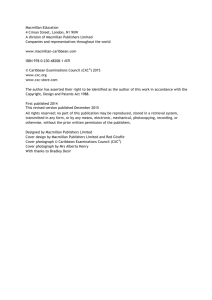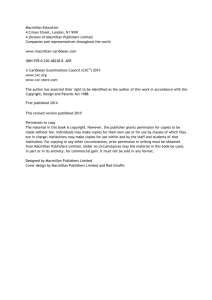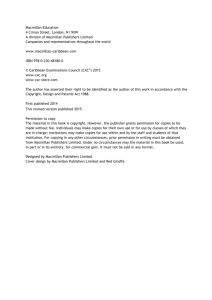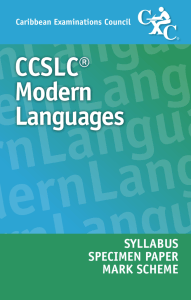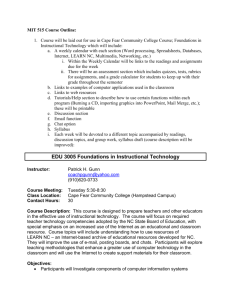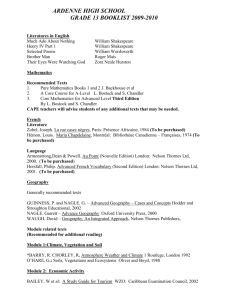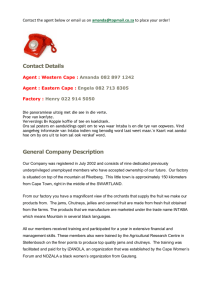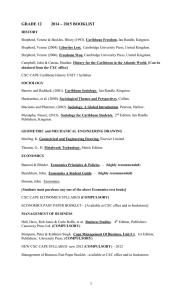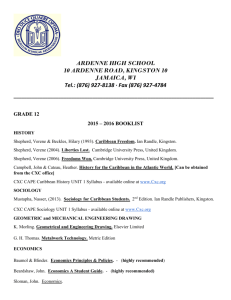CAPE® Environmental Science Syllabus, Specimen Paper, Mark
advertisement
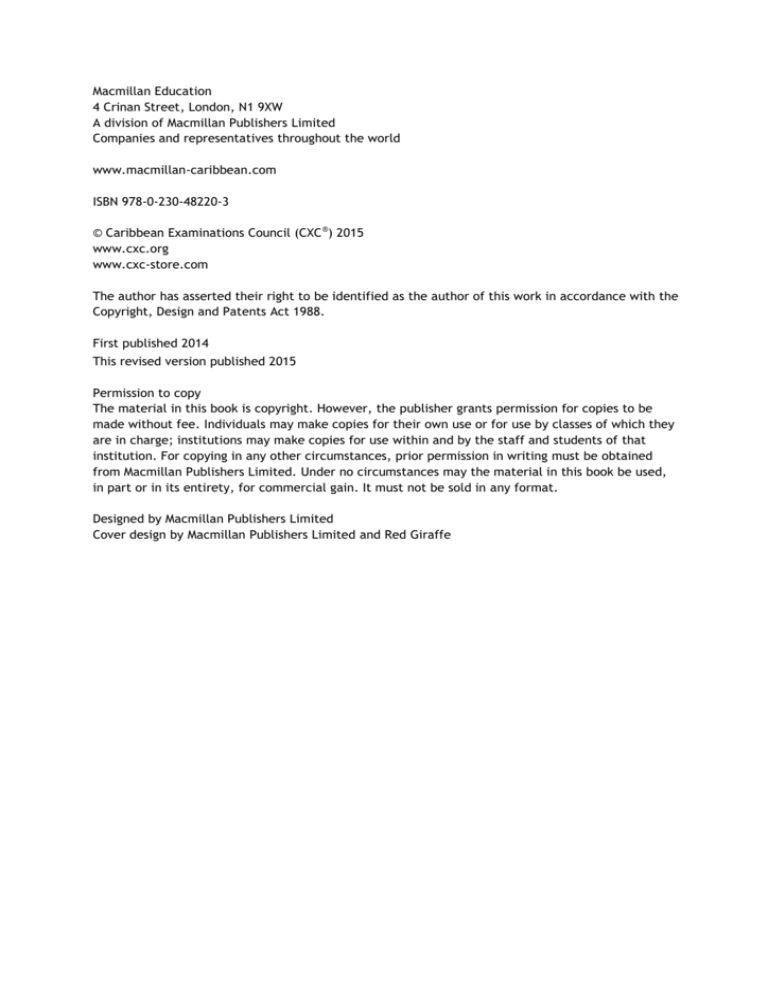
Macmillan Education 4 Crinan Street, London, N1 9XW A division of Macmillan Publishers Limited Companies and representatives throughout the world www.macmillan-caribbean.com ISBN 978-0-230-48220-3 © Caribbean Examinations Council (CXC ®) 2015 www.cxc.org www.cxc-store.com The author has asserted their right to be identified as the author of this work in accordance with the Copyright, Design and Patents Act 1988. First published 2014 This revised version published 2015 Permission to copy The material in this book is copyright. However, the publisher grants permission for copies to be made without fee. Individuals may make copies for their own use or for use by classes of which they are in charge; institutions may make copies for use within and by the staff and students of that institution. For copying in any other circumstances, prior permission in writing must be obtained from Macmillan Publishers Limited. Under no circumstances may the material in this book be used, in part or in its entirety, for commercial gain. It must not be sold in any format. Designed by Macmillan Publishers Limited Cover design by Macmillan Publishers Limited and Red Giraffe CAPE® Environmental Science Free Resources LIST OF CONTENTS CAPE® Environmental Science Syllabus Extract 3 CAPE® Environmental Science Syllabus 4 CAPE® Environmental Science Specimen Papers: Unit 1 Paper 01 Unit 1 Paper 02 Unit 1 Paper 03/2 Unit 2 Paper 01 Unit 2 Paper 02 Unit 2 Paper 03/2 77 86 93 99 108 116 CAPE® Environmental Science Mark Schemes/Keys: Unit 1 Paper 01 Unit 1 Paper 02 Unit 1 Paper 03/2 Unit 2 Paper 01 Unit 2 Paper 02 Unit 2 Paper 03/2 121 122 135 145 146 167 CAPE® Environmental Science Subject Reports: May/June 2004 May/June 2005 May/June 2006 May/June 2007 May/June 2008 Trinidad and Tobago May/June 2008 Rest of Caribbean May/June 2009 May/June 2010 May/June 2011 May/June 2012 May/June 2013 May/June 2014 180 209 238 263 286 307 326 345 365 380 393 415 Environmental Science Environmental Science is an interdisciplinary branch of science that deals with the interactions among physical, chemical, and biological components of the environment. The subject employs qualitative and quantitative approaches to the study of environmental systems. The CAPE Environmental Science Syllabus provides opportunities for students to acquire knowledge and skills to identify, prevent and solve problems and prepares them for careers in diverse fields related to environmental management and to sustainable development of the Caribbean Region. The aims of the syllabus include development of an understanding of the interdisciplinary and holistic nature of the environment and the interactions between people and the environment. The subject is organised in two Units. A Unit comprises three Modules. UNIT 1: Ecology, Human Population and Natural Resources Module 1 – Fundamental Ecological Principles Module 2 – Human Population and the Environment Module 3 – Sustainable Use of Natural Resources UNIT 2: Agriculture, Energy and Environmental Pollution Module 1 – Agriculture and the Environment Module 2 – Energy and the Environment Module 3 – Pollution of the Environment CARIBBEAN EXAMINATIONS COUNCIL Caribbean Advanced Proficiency Examinations CAPE® ENVIRONMENTAL SCIENCE SYLLABUS Effective for examinations from May/June 2011
